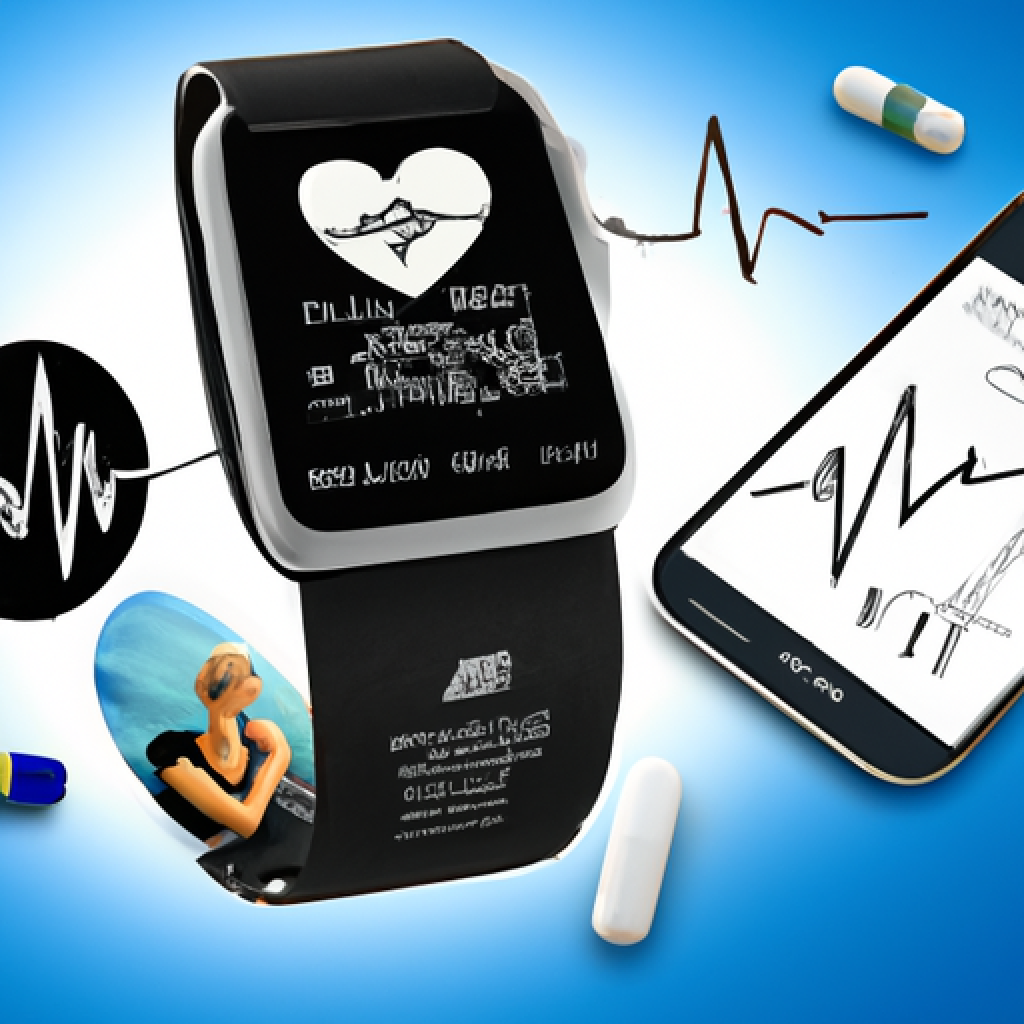What Are 5 Wearable Medical Devices?

As technology continues to advance, the field of healthcare is also experiencing remarkable innovations. One of the most intriguing developments is the emergence of wearable medical devices. These ingenious gadgets have revolutionized healthcare by seamlessly integrating into our daily lives while monitoring our health and providing valuable data to both patients and healthcare professionals. In this article, I will explore five notable wearable medical devices that are making a significant impact on the way we approach healthcare.
The Concept of Wearable Medical Devices
Definition of wearable medical devices
Wearable medical devices refer to technology-based devices that are designed to be worn by individuals to monitor and collect various health-related data. These devices are typically non-invasive and are integrated with sensors, which allow them to track vital signs, physical activity, sleep patterns, and other biometric measurements. The collected data is then transmitted to a smartphone, tablet, or computer for further analysis and interpretation.
Importance of wearable medical devices in healthcare
Wearable medical devices play a crucial role in healthcare as they offer several benefits and opportunities for both patients and healthcare providers. These devices allow for continuous monitoring of health parameters, which can aid in early detection and prevention of diseases. Furthermore, wearable devices enable remote patient monitoring, facilitating effective healthcare delivery to individuals located in remote areas. They also empower patients to take an active role in managing their own health by providing real-time feedback and encouraging healthier behaviors. With the increasing prevalence of chronic illnesses, wearable medical devices have become vital tools in managing and improving patients’ overall well-being.

Advantages of Wearable Medical Devices
Convenience for patients
One of the significant advantages of wearable medical devices is the convenience they offer to patients. Unlike traditional medical devices, which often require regular visits to healthcare facilities, wearable devices can be worn throughout the day, allowing for continuous monitoring without disrupting daily activities. These devices are lightweight, compact, and designed for comfortable wear, ensuring minimal interference with the user’s daily routines. Patients can easily track their health parameters, such as heart rate, blood pressure, and activity levels, without the need for additional equipment or intervention from healthcare professionals.
Allows for continuous health monitoring
Wearable medical devices provide an opportunity for continuous health monitoring, which is especially valuable in managing chronic conditions. Patients can track their vital signs, sleep patterns, and physical activity levels in real-time, allowing them to make immediate adjustments to their lifestyle or treatment plans as needed. Continuous monitoring also enables early detection of any abnormal changes, potentially preventing the progression of diseases or complications. For example, individuals with cardiovascular diseases can use wearable devices to monitor their heart rate and detect irregularities, leading to prompt medical intervention if necessary.
Can predict illnesses before they become severe
Another advantage of wearable medical devices is their ability to predict illnesses before they become severe. By monitoring various health parameters over an extended period, these devices can detect subtle changes that may indicate the onset of a medical condition or exacerbation of an existing one. For instance, wearable devices equipped with advanced algorithms can analyze sleep patterns to identify sleep disorders such as sleep apnea. Detecting such conditions early allows for timely interventions and prevents potential complications, improving overall health outcomes.

Potential Challenges and Limitations of Wearable Medical Devices
Privacy concerns
As wearable devices collect sensitive health data, privacy concerns arise regarding the storage, transmission, and use of such information. It is crucial for manufacturers and healthcare providers to ensure robust security measures to protect patient data from unauthorized access or misuse. Additionally, clear guidelines and regulations need to be in place to govern the handling and storage of wearable device data, ensuring patients’ confidentiality and data protection.
Possibility of inaccurate data
Wearable medical devices heavily rely on accurate sensor readings to provide reliable health information. However, there is a possibility of inaccuracies in data collection due to factors like device calibration, positioning, or user error. To address this limitation, manufacturers must continually improve the accuracy and precision of the sensors used in wearable devices. It is also essential for users to follow proper instructions for device placement and use to ensure accurate data collection.
Reliance on battery power
Wearable medical devices heavily rely on battery power to function, and limited battery life can be a potential challenge. Users need to regularly charge or replace batteries to maintain uninterrupted monitoring, which may be inconvenient for some individuals. Extending battery life and developing innovative charging solutions, such as wireless charging or long-lasting batteries, can help overcome this limitation. Additionally, low-power consumption technologies should be explored to reduce the frequency of battery replacements or recharging.

Wearable Medical Device 1: Fitness Trackers
Functions and features of fitness trackers
Fitness trackers are among the most popular types of wearable medical devices. These devices are designed to monitor physical activity, exercise routines, and overall fitness levels. Fitness trackers typically include features such as step counting, distance tracking, calorie expenditure estimation, heart rate monitoring, sleep tracking, and even GPS capabilities. Some advanced fitness trackers may also offer smartphone connectivity, allowing users to receive notifications, track workouts, and analyze performance data.
Health data collected by fitness trackers
Fitness trackers collect various health data to provide users with insights into their physical activity and overall fitness. These devices monitor steps taken, distance traveled, and calories burned, offering a comprehensive picture of daily activity levels. Additionally, heart rate monitoring enables users to track their cardiovascular health and optimize exercise intensity. Some fitness trackers also provide sleep tracking features, measuring sleep duration and quality, allowing users to gain insights into their sleep patterns and improve sleep hygiene.
Popular brands and models
Some popular brands and models of fitness trackers include Fitbit, Garmin, Apple Watch, Samsung Galaxy Watch, and Xiaomi Mi Band. These brands offer a variety of models with varying features and price ranges, catering to different user preferences and budget considerations. Each brand may offer additional functionalities and unique designs, allowing users to choose a fitness tracker that aligns with their specific needs and style preferences.








